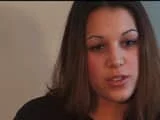Firsthand Stories of MDMA/Ecstasy Abuse
Informational sources on drug abuse tend to come from scientific research, national surveys,and personal histories.EachilluminatestheAmerican drug epidemic from a different angle. While it is helpful to learn about national patterns of use, personal stories ofecstasy abusecan serve as a useful education and prevention tool. The PBS programIn The Mixis dedicated to giving a voice to young survivors of drug abuse. The show profiles young users of a variety of drugs, including ecstasy. The teens’ narratives generally include the age at which they began taking ecstasy, who exposed them to the drug, reckless behaviors they engaged in while on the drug,effects of the drugand their progress in recovery.Although theseteens donot know each other, their stories have similar features, and speak best for themselves. The followingis a glimpse at the experiences of three teens.
From Marijuana, to Ecstasy, then Acid – Michelle’s MDMA Story
Michelle got her start with drugs with marijuana, at the age of 14. She shares that she soon graduated to ecstasy then acid. For Michelle, the start of high- school triggered the drug abuse, as well as influence from her boyfriend.She wanted to fit in. Although she enteredhigh school as a cheerleader, by sophomore year she was a near dropout.She became a poly-drug user, and ecstasy was just one of her drugs of abuse. Eventually, tomaintain her high, she stole from her parents. Although she has been in astructured recovery programfor over a year, shesays she still misses using, especially because drugs gave her the feeling that everything in life was all right.

Ecstasy, Theft, Suicide Attempt and Rehab – Jim’s MDMA Story
Jim also got his start with marijuana. Like Michelle, he also used other drugs and admits that he triedall of the club drugs he could find, including ecstasy. He also stole from his parents and recalls how they even had to pat him down once. That was not his lowest point. His story focuses onthe extremedepression he felt after taking ecstasy.Heultimately attempted suicidebyfire.He joinedrehab,andas of the time of the show, he had reached the longest stint of sobrietyeverin his life.

Ecstasy’s Risky Behavior and Recovery – Ashley’s MDMA Story
Ashley took ecstasy for the first timeat the age of 12. She was influenced by a friend’s older brother. Ashley’s story represents how ecstasy lowers inhibitions and can cause users to engage in reckless behaviors. Ashley recalls how, when on ecstasy, she engaged in unprotected sex, and then became fearful she had contracted HIV. She had not, but the experience haunted her. On another occasion, she was arrested for drug possession. Eventually, she entered rehab as an alternative to facing criminal sanctions. Although herrehabadmission was not entirely voluntary, she has succeeded in her recovery and credits herstay in aresidential facilitywith her abstinence and the improvement in her grades at school. These MDMA usershavesomethingin common with an estimated230,000 Americans in 2013 – they all had their first Ecstasy experience under the age of 18.A commonelement of all the teens’ experiencewas that they did not contain their drug abuse to ecstasy alone.But however entrenched the teens became in drug use, each story makes clear that rehabcan be effectivein treatingabuse of ecstasy and other drugs, and in getting a young person back on track with school.















